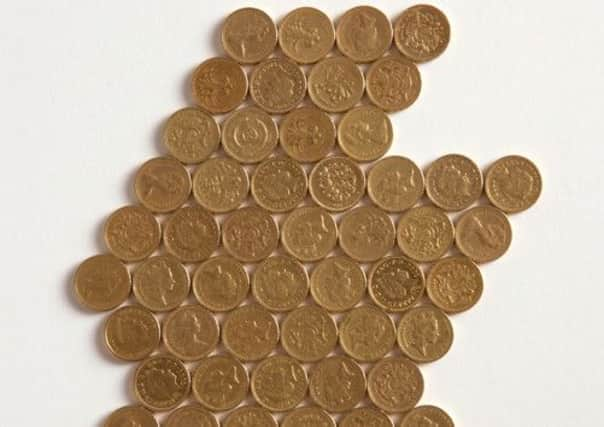Scottish independence: Donations loophole fears


Yes Scotland and Better Together, along with the political parties which back them, can spend £3 million in the 16 week- “restricted period” before the poll on 18 September next year.
But the country’s elections watchdog says there is “no limit” to the number of permitted participants, individual or groups that campaign outside the lead groups or parties, which can spend up to £150,000 in that period.
Advertisement
Hide AdAdvertisement
Hide AdThe Electoral Commission says it has strict guidelines to monitor links between the campaigns and other groups, amid concerns that these smaller entities could be used to funnel surplus funding from the main groups.
The Yes side has already gathered £3m with the help of £2m from lottery winners Colin and Chris Weir, although some of this could be spent before the restricted period. The No campaign has also secured major donations, including £500,000 from oil magnate Ian Taylor.
Nationalist MSP Stewart Maxwell asked what is to stop organisations being set up by local activists around Scotland, but which could be heavily funded by one side.
“If there’s enough money coming in on one side or the other, what’s to stop multiple organisations being established all over Scotland, all with a loan of £150,000?” he asked commission chiefs in Holyrood yesterday.
Mr Maxwell queried how this would square with the principles of “balance” and a “level playing field” which was behind the £3m approximate split to each side. “It may of may not happen, but one side could easily outspend the other by an enormous amount of money.” Peter Horne, director of party and election finance at the commission said: “There’s nothing to stop that.”
But the watchdog has the ability to intervene and even call a halt to suspicious campaign activity like a co-ordinated double decker bus advertising push in towns and cities across Scotland if this clearly breached campaign spending limits, Mr Horne warned.
“We have the power working with the procurator-fiscal to issue a stop notice,” he said.
“It’s not something that we have done in the past, but we are preparing for the possibility that we may need to intervene. We do so on the basis of fact.
Advertisement
Hide AdAdvertisement
Hide Ad“We’re going to be clear in the run up to the referendum period that we have those powers and will use them if necessary. It’s critically important for the commission that the referendum is fair and seen to be fair.”
Concerns were also raised that government-funded bodies may be able to campaign for one side or the other in the run-up to the referendum with no watchdog body to police their activities.
Liberal Democrat MSP Tavish Scott said the position could lead to a “free-for-all”.
Electoral Commissioner for Scotland, John McCormick, offered to write to the committee with a “considered view” on how public bodies are affected, particularly in the 28-day “purdah” period before polls when governments cannot make major policy announcements.
Warning over ‘Scots pound’
Scots must know which currency will be used under independence after the
break-up of Czechoslovakia resulted in “chaos” and billions lost to “corrupt speculators”, an expert has warned.
Dr Ivo Samson said yesterday that using the same currency, like the SNP plans with the pound, was disruptive.
“Any country that is prepared for a referendum on division should settle this issue before the start,” he said.
Advertisement
Hide AdAdvertisement
Hide AdBoth the Czech Republic and Slovakia continued to use the Koruna after the split in February 1993, stamped as either Czech or Slovak. But it was “easy” to pay with either note across the former federation and with the Czech economy considerably stronger, its notes were effectively more valuable.
“In between speculators caused damage to the state in billions,” Dr Samson said
Conservative leader warns of ‘basket case’ economy
ALEX Salmond’s economic plans for independence would turn Scotland into a “Central American style basket case” Conservative leader Ruth Davidson said at First Minister’s questions.
Ms Davidson made the claim after Mr Salmond launched a flagship government paper –Scotland’s Economy: The Case for Independence – that said economic mismanagement by UK governments is costing jobs and depressing growth.
The Conservative leader suggested that an independent Scotland would have to resort to back-street loan sharks if it walked away from a fair share of UK debt.
Mr Salmond has previously raised the prospect of a debt-free start to independence if the UK government refuses to agree a fair share of assets.
Ms Davidson attacked the Scottish Government’s economic paper on independence saying that “It posed more questions that answers”.
However, Mr Salmond insisted that Westminster’s policies did not fit with priorities in Scotland and had “held back” the country’s progress – a key theme of the SNP government’s economic paper.